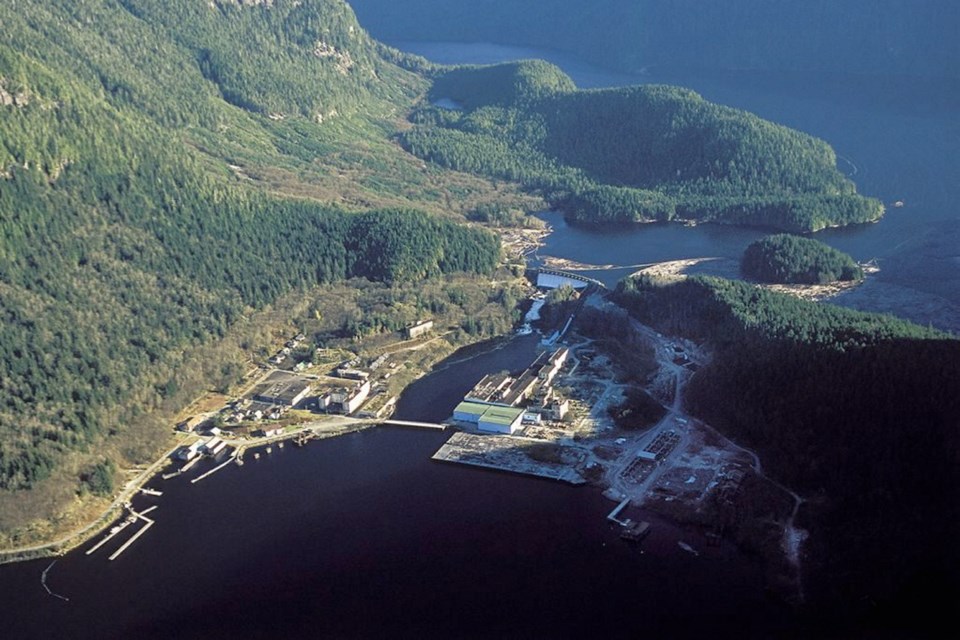When Duncan lawyer Brian McDaniel first mentioned to friends and acquaintances that he was researching and writing a book about Ocean Falls, I responded with a graceless and obtuse question: “Good idea, but who will read it?”
Now I know the answer to that question: Everybody should.
Studying history to most of us means grinding our way through history on a grand scale: the rise and fall of great civilizations, the foundations of major social and economic changes, revolutions and wars that affect entire nations and their peoples.
In approaching history that way, we lose sight of the extraordinary individuals, families and communities that all played their part in shaping our world and our lives.
We lose sight of people such as Frances Oldham Kelsey, born in 1914 in Cobble Hill, just up the road from Victoria, who, in 1962, was awarded the President’s Award for Distinguished Federal Service by U.S. president John F. Kennedy for her work in resisting the widespread use of thalidomide, which had been causing deformities in babies.
I mentioned “just up the road from Victoria” — that would be the Malahat highway, first mapped out by an Irish immigrant farmer from Mill Bay, Major James McFarlane, who, frustrated about getting his product to market, set out one day in 1903 with a hand compass and an aneroid barometer and brush-busted a path from Cobble Hill to Goldstream, creating the outline of what is now the Malahat.
Local history contains the real stuff, the wealth of details and stories that reveal how societal changes affected and were affected by the lives of ordinary people.
That is what makes McDaniel’s story of Ocean Falls so readable — as it describes in refreshing and meticulously researched detail the events and the people whose lives far exceeded one small town and the brightest and darkest days of one community.
With almost inexplicable foresight in 1928, the people of Ocean Falls built an indoor swimming pool from the profits of the local beer parlour. From this pool, at least one swimmer from Ocean Falls participated in every Canadian Olympic, Pan Am or Commonwealth Games team from the mid-1940s to the mid-1970s.
Dick Pound was one of those swimmers. He would later become president of the Canadian Olympic Association, vice-president of the International Olympic Committee, first president of the World Anti Doping Agency and chancellor of McGill University.
The unique “people” stories include that of Otto Tancon, an Italian immigrant in Ocean Falls working as a longshoreman, whose cousin Albino Luciani, back home in Italy, became Pope John Paul I.
McDaniel’s book charts the community’s “golden years” from the late 1940s, when a major expansion of the mill and community facilities occurred, through the 1950s when the work force rose to 1,370 and the population peaked at 3,056 in 1961, to 1965 when the paper machines began to shut down.
The significance of this local history is the story of not just one B.C. mill town, but of families and communities who lived through the rise and fall and rise again of resource towns up and down the coast and elsewhere across B.C.
Learning about local history turns the grand patterns of historical change into concrete stories that tell of the real lives of real individuals.
Even a hurried look at the details that comprise local history adds significantly to an understanding of “big story” historical process, what academic historians tend to gloss over in general “big story” terms.
Learning about local history helps us realize that in the grand scheme of historical change, the great discoveries and greater mistakes are made up of the decisions and lives of countless ordinary individuals who, in their own ways, contributed to the ongoing story of our country, our province and our immediate community.
So — who should read accounts of local history such as McDaniel’s Ocean Falls — After the Whistle? We all should if we seek to understand the who, what, where, when, why and how of the living history around us.
That’s not to diminish the importance of a study of world and national history, but in one sense, as professional genealogist Amy Johnson Crow points out on her website, “all history is local” and no story is too small to be, in its own way, epic.
Just ask the men who lived in Ocean Falls and worked at the pulp mill in the 1970s — one, Times Colonist columnist Jack Knox, and another who worked there to support his widowed mother and three siblings.
That would be B.C. Premier John Horgan.
Geoff Johnson is a former superintendent of schools.



